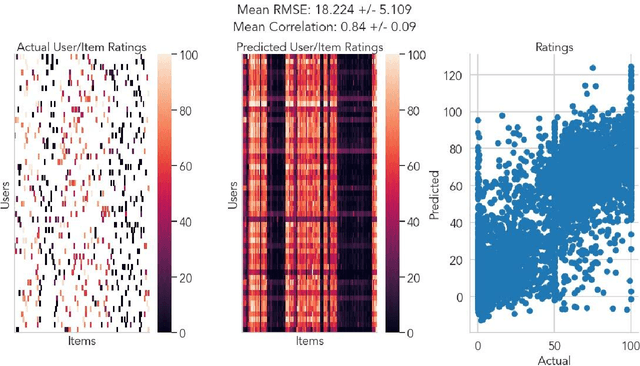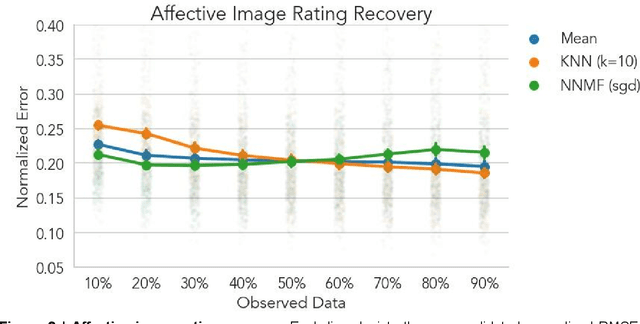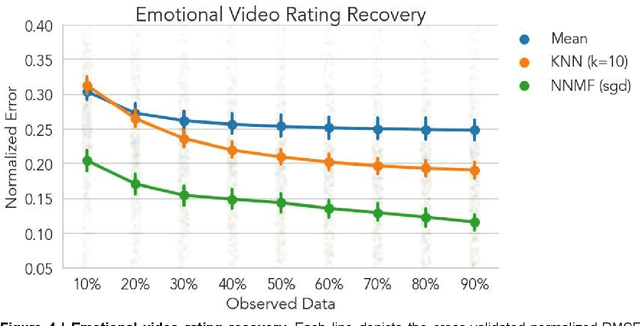Luke J. Chang
Recovering individual emotional states from sparse ratings using collaborative filtering
Sep 14, 2021



Abstract:A fundamental challenge in emotion research is measuring feeling states with high granularity and temporal precision without disrupting the emotion generation process. Here we introduce and validate a new approach in which responses are sparsely sampled and the missing data are recovered using a computational technique known as collaborative filtering (CF). This approach leverages structured covariation across individual experiences and is available in Neighbors, an open-source Python toolbox. We validate our approach across three different experimental contexts by recovering dense individual ratings using only a small subset of the original data. In dataset 1, participants (n=316) separately rated 112 emotional images on 6 different discrete emotions. In dataset 2, participants (n=203) watched 8 short emotionally engaging autobiographical stories while simultaneously providing moment-by-moment ratings of the intensity of their affective experience. In dataset 3, participants (n=60) with distinct social preferences made 76 decisions about how much money to return in a hidden multiplier trust game. Across all experimental contexts, CF was able to accurately recover missing data and importantly outperformed mean imputation, particularly in contexts with greater individual variability. This approach will enable new avenues for affective science research by allowing researchers to acquire high dimensional ratings from emotional experiences with minimal disruption to the emotion-generation process.
Py-Feat: Python Facial Expression Analysis Toolbox
Apr 08, 2021



Abstract:Studying facial expressions is a notoriously difficult endeavor. Recent advances in the field of affective computing have yielded impressive progress in automatically detecting facial expressions from pictures and videos. However, much of this work has yet to be widely disseminated in social science domains such as psychology. Current state of the art models require considerable domain expertise that is not traditionally incorporated into social science training programs. Furthermore, there is a notable absence of user-friendly and open-source software that provides a comprehensive set of tools and functions that support facial expression research. In this paper, we introduce Py-Feat, an open-source Python toolbox that provides support for detecting, preprocessing, analyzing, and visualizing facial expression data. Py-Feat makes it easy for domain experts to disseminate and benchmark computer vision models and also for end users to quickly process, analyze, and visualize face expression data. We hope this platform will facilitate increased use of facial expression data in human behavior research.
 Add to Chrome
Add to Chrome Add to Firefox
Add to Firefox Add to Edge
Add to Edge